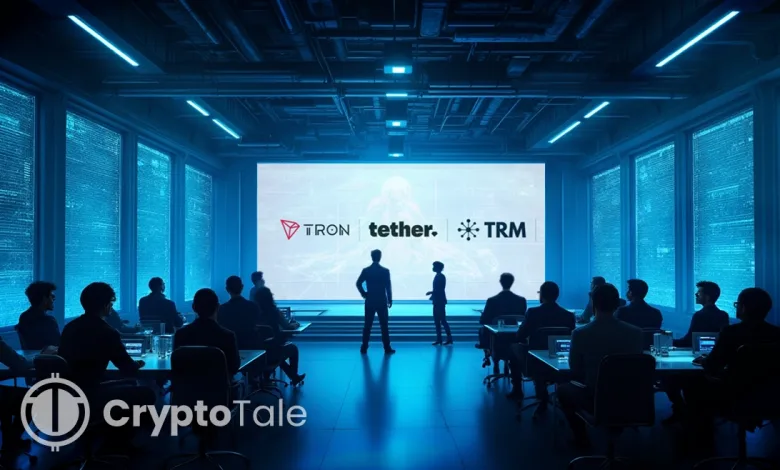T3 FCU Freezes $250 Million and Redefines Crypto Crime Fighting

- T3 FCU froze $250M in illicit assets, redefining private crypto crime enforcement.
- T3+ expands cross-border policing by integrating exchanges and financial services.
- TRM Labs analytics drive preemptive blockchain crime prevention across ecosystems.
The T3+ Financial Crime Unit, a collaboration between Tether, TRON, and TRM Labs, has frozen over $250 million in illicit assets less than a year after its launch. This operation positions the initiative as a new model for cross-border, crypto-native enforcement.
The unit began operations in September 2024 and has already worked with law enforcement across five continents. Its reach has included transactions linked to money laundering, scams, hacks, and terrorism financing. These actions signal an evolving expectation for exchanges and stablecoin issuers to operate as first responders in financial crime.
By bringing in exchanges, financial institutions, and other stakeholders, the program aims to enable real-time intervention. Binance has already joined and contributed to freezing nearly $6 million tied to a pig butchering scam.
Tether’s Enforcement Leadership
Tether has taken the frontline in the world of blockchain-facilitated crime prevention by leading in T3 FCU. The corporation has helped law enforcement agencies directly in tracing suspicious transactions and enforcing asset freezes. This forward action has consolidated its position as a compliant-focused stablecoin issuer.
The recent achievement shows that we do not need government or state oversight to curb organized cyber interference; we can privately police such activities through monitoring. Tether infrastructure allows for quickly detecting and limiting suspicious activity. Such an ability enables one to act instantly without having to wait long to conduct the investigation in conventional ways.
The cooperation model also signals a shift in regulatory thinking. Instead of waiting for legislative directives, blockchain companies are creating frameworks that law enforcement can integrate into active cases. This could influence how regulators assess compliance standards in the future.
TRON’s Expanding Role in Cross-Border Collaboration
The technical integration of TRON is not the only role that the platform plays in the unit. The network has provided the necessary size and visibility of transactions to trace billions in volume. This has enabled jurisdictions to be crossed without compromising operational tempo.
Its founder has highlighted that real-time monitoring can avert crime and not merely respond to it. This viewpoint is influencing the unit’s issues concerning enforcement. Through collaboration with regulators and agencies, TRON has ensured that the transparency of blockchain has become an attribute and not a problem.
With T3+, TRON’s network capabilities are part of a broader enforcement alliance. Integration with exchanges and financial services expands the reach of investigations, representing a move toward sector-wide policing mechanisms embedded within the blockchain itself.
Related: Tether Backs Rumble’s $1.17B Bid for AI Firm Northern Data
TRM Labs and the Future of Crypto Compliance
TRM Labs has supplied the analytics and intelligence layer for T3 FCU operations. Its systems have processed over $3 billion in transaction data for potential criminal activity. These tools allow for complex network mapping and asset tracking across multiple blockchain ecosystems.
The partnership with government entities has made TRM Labs a major stakeholder in digital asset inquiry. The company facilitates quicker case resolutions by using blockchain analysis coupled with direct enforcement action, which has enhanced confidence between international legislation and the operator.
The expansion of T3+ implies a roadmap of crypto compliance through future standards. Supported on a large scale, such frameworks have the potential to divert the expectations towards preemptive enforcement rather than simply reacting to violations. This would make the ecosystem more secure and limit the possibility of extensive illegal financing.




